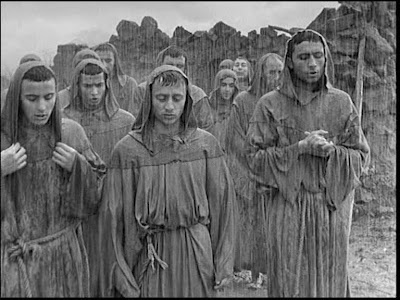 Here's the column I wrote for our local paper to celebrate some of May's bounty. OK, so I left out the following May observances:
Here's the column I wrote for our local paper to celebrate some of May's bounty. OK, so I left out the following May observances:Lou Gehrig's Disease Awareness Month
Asian Pacific American Heritage Month
Awareness of Medical Orphans Month
Better Hearing & Speech Month
Borderline Personality Disorder Month
Brain Tumor Awareness Month
Creative Beginnings Month
Family Wellness Month
Fibromyalgia Education and Awareness Month
Freedom Shrine Month
Get Caught Reading Month
Gifts From The Garden Month
Go Fetch! Food Drive for Homeless Animals Month
Haitian Heritage Month
Heal the Children Month
Healthy Vision Month
Huntington's Disease Awareness Month
International Audit Month
International Business Image Improvement Month
International Victorious Woman Month
Jewish-American Heritage Month
Latino Books Month
Motorcycle Safety Month
National Allergy/Asthma Awareness Month
National Arthritis Month
National Barbeque Month
National Bike Month
National Correct Posture Month
National Egg Month
National Foster Care Month
National Good Car Keeping Month
National Hamburger Month
National Hepatitis Awareness Month
World Lyme Disease Awareness Month
National Meditation Month
National Mental Health Month
National Military Appreciation Month
National Moving Month
National Neurofibromatosis Awareness Month
National Older Americans Month
National Osteoporosis Prevention Month
National Photo Month
National Physical Fitness & Sports Month
National Preservation Month
National Salad Month
National Salsa Month
National Smile Month
National Stroke Awareness Month
National Revise Your Work Schedule Month
National Vinegar Month
Navajo Code Talkers Month
Personal History Month
Prepare to Buy A Home Month
React Month
Strike Out Strokes Month
Sweet Vidalia Onions Month
Teen Self-Esteem Month
Tennis Month
Tay-Sachs and Canavan Diseases Month Link
Ultra-violet Awareness Month
Women's Health Care Month
Young Achiever's Month
National Family Month
But wouldn't it be cool to find a movie that fits each of these? Or maybe not. Anyway, go read, if you like.
For T.S. Eliot, April may have been “the cruellest month,” but May is the greediest. From May Day to Memorial Day, from maypoles to Blessed Virgins, from earnest anarchists to honored dead—and wandering around in there somewhere, supermarket flowers and drugstore perfume in hand, dearest Mom—this month is just one thing after another. Not that I’m complaining.
 May Day (I)
May Day (I)I wonder: Does anybody in the U.S. erect (so to speak) maypoles anymore? Or is it just capering Swedes and Brits, glimpsed on CNN and looking silly? Sometimes I wish we’d all join in and start the month with a little pagan merrymaking, as in L'Auberge espagnole/The Spanish Apartment (2002)—also known as, I kid you not, Euro Pudding. A French college student in Barcelona rooms for a year with a variety of Europeans, yielding various sweet, sad, roisterous fruits.
May Day (II)
Catholic school kids know May Day as Mary’s Day. When I was in my parochial prime, we would assemble in the playground and fidget while first-graders processed toward the Virgin’s statue, crown of flowers in hand, silly and sweet minor saints. Barring your own life-experiences among God’s peanut gallery, see The Flowers of St. Francis (1950). Directed by Roberto Rossellini and co-written by Federico Fellini, the film—whose Italian title is Francesco, giullare di Dio/Francis, God’s Jester—employs actual monks, who play Francis and his followers as gentle slapstick versions of sanctity, filled with humility and the quiet urge to be happy.
May Day (III)
 Also known as International Workers’ Day, when labor unionists, Communists, and anarchists commemorate Chicago’s Haymarket Riot in 1886, spurred by an act of “labor terrorism” and sparking pro-union movements around the world. Not to mention the eight-hour workday. If you didn’t take my advice last week (in the Rating Game for “Best Documentaries”) and check out Harlan County, U.S.A. (1976), now’s the time to remember the real battles fought and sacrifices made. And if you want a (more or less) fiction film, John Sayles’ Matewan (1987) also walks the coalfields—this time, of 1920s West Virginia. In his book Thinking in Pictures, Sayles asserts that the story of labor is also an American one, and so he constructed the movie as if it were a wooded-hills Western, including a Main Street showdown—except here, the hero is a collective and the guys in black hats are union-busters.
Also known as International Workers’ Day, when labor unionists, Communists, and anarchists commemorate Chicago’s Haymarket Riot in 1886, spurred by an act of “labor terrorism” and sparking pro-union movements around the world. Not to mention the eight-hour workday. If you didn’t take my advice last week (in the Rating Game for “Best Documentaries”) and check out Harlan County, U.S.A. (1976), now’s the time to remember the real battles fought and sacrifices made. And if you want a (more or less) fiction film, John Sayles’ Matewan (1987) also walks the coalfields—this time, of 1920s West Virginia. In his book Thinking in Pictures, Sayles asserts that the story of labor is also an American one, and so he constructed the movie as if it were a wooded-hills Western, including a Main Street showdown—except here, the hero is a collective and the guys in black hats are union-busters.Cinco de Mayo
On May 5, 1862, the Mexican army beat the French at Puebla. Over the years, this day has been happily re-invented as a trans-border party of Mexican culture, spirit, and pride, particularly in the United States. In Real Women Have Curves (2002), Ana Garcia (America “Ugly Betty” Ferrera) and her family personify the community of love, sorrow and hope that Cinco de Mayo celebrates.
 Mother’s Day
Mother’s DayI’m as eager as anyone to support the couplet-glutted greeting-card market, but if you want to give your mother a celluloid bouquet, try The Incredibles (2004)—now there’s one super Mom—or select scenes from John Ford’s The Grapes of Wrath (1940). Jane Darwell as Ma Joad is pure Dorothea Lange: as sad and solid as the hard-packed fields she is forced to abandon, looking into a middle distance where she yearns to build a home for her children, one weary mile at a time. Thanks, Ma.
Of course, if she’s that “other” kind of mother, just screen Mommie Dearest or Throw Momma from the Train or Psycho or White Heat or The Manchurian Candidate or Serial Mom or Carrie or Aliens or—well, there’s plenty of Moms to go around.
Memorial Day
 Formerly known as Decoration Day, it began as a way to honor the Civil War dead, but over the years has rested its soothing hand, filled with poppies and small flags, upon mourners of all wars. We could begin with Gettysburg (1993), a four-hour living journal of the decisive battle of a War that engendered too many mourners.
Formerly known as Decoration Day, it began as a way to honor the Civil War dead, but over the years has rested its soothing hand, filled with poppies and small flags, upon mourners of all wars. We could begin with Gettysburg (1993), a four-hour living journal of the decisive battle of a War that engendered too many mourners.But a deeper urge persists, one that not only mourns but indicts the ones who cause the sorrow of those who live on. All Quiet on the Western Front (1930), based on Erich Maria Remarque’s World War I novel, leaves its grim soldiers staring blankly at the future that has been left to them, as blood-soaked and filthy as the trenches they hate—and hate to leave—and as bleak as the slate skies that look down and could care less. The movie demands that, before we memorialize, we ask ourselves why we put ourselves in the position of honored dead and earnest mourner. As when I wrote about Veterans Day films last year, I’m reminded of the hesitation Lincoln expressed in the Gettysburg Address: “we can not dedicate—we can not consecrate—we can not hallow—this ground.” As he tells us, the dead have done that already, and we would do well to trade in our pride for humility, at least once a year, on the last Monday in May.
No comments:
Post a Comment